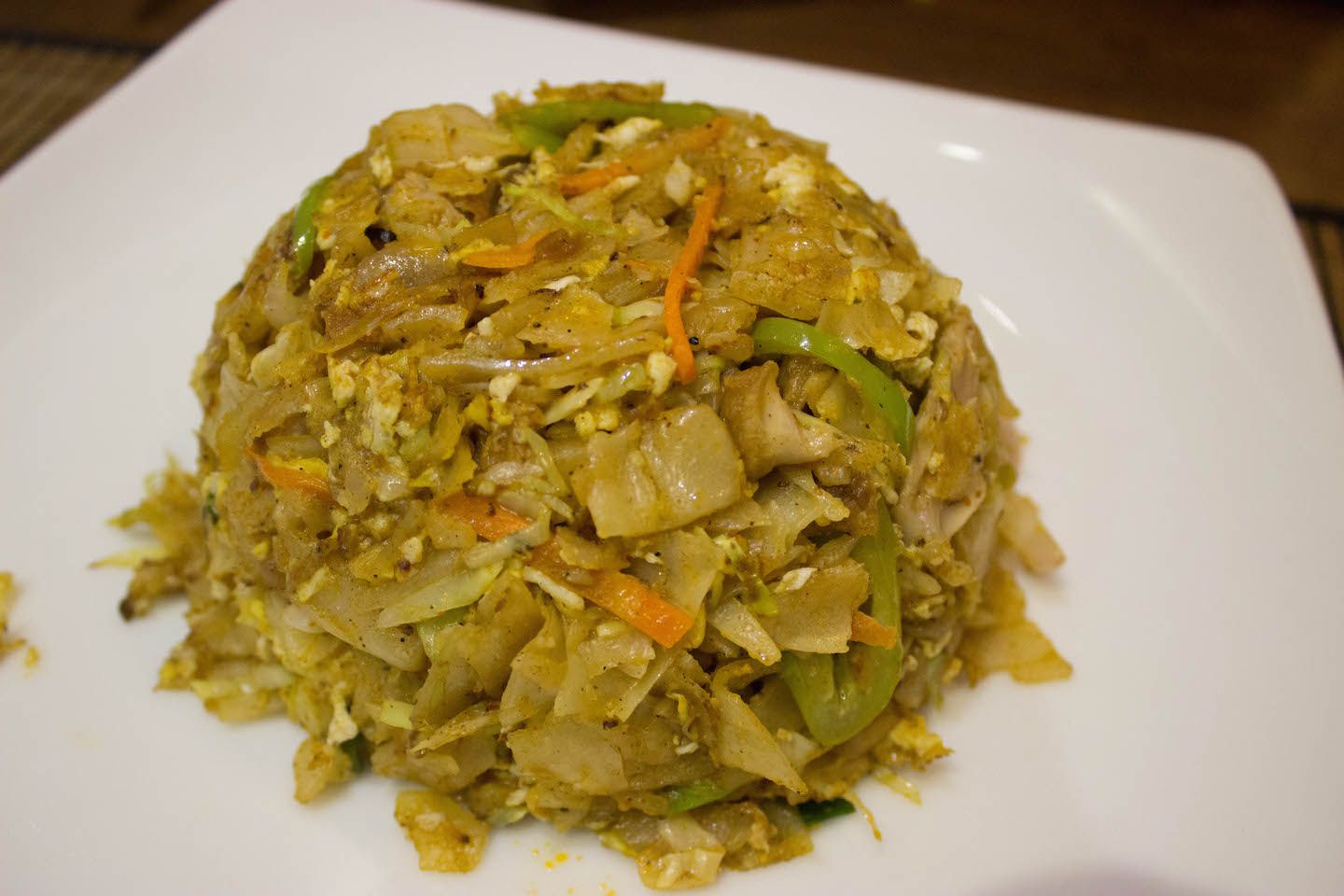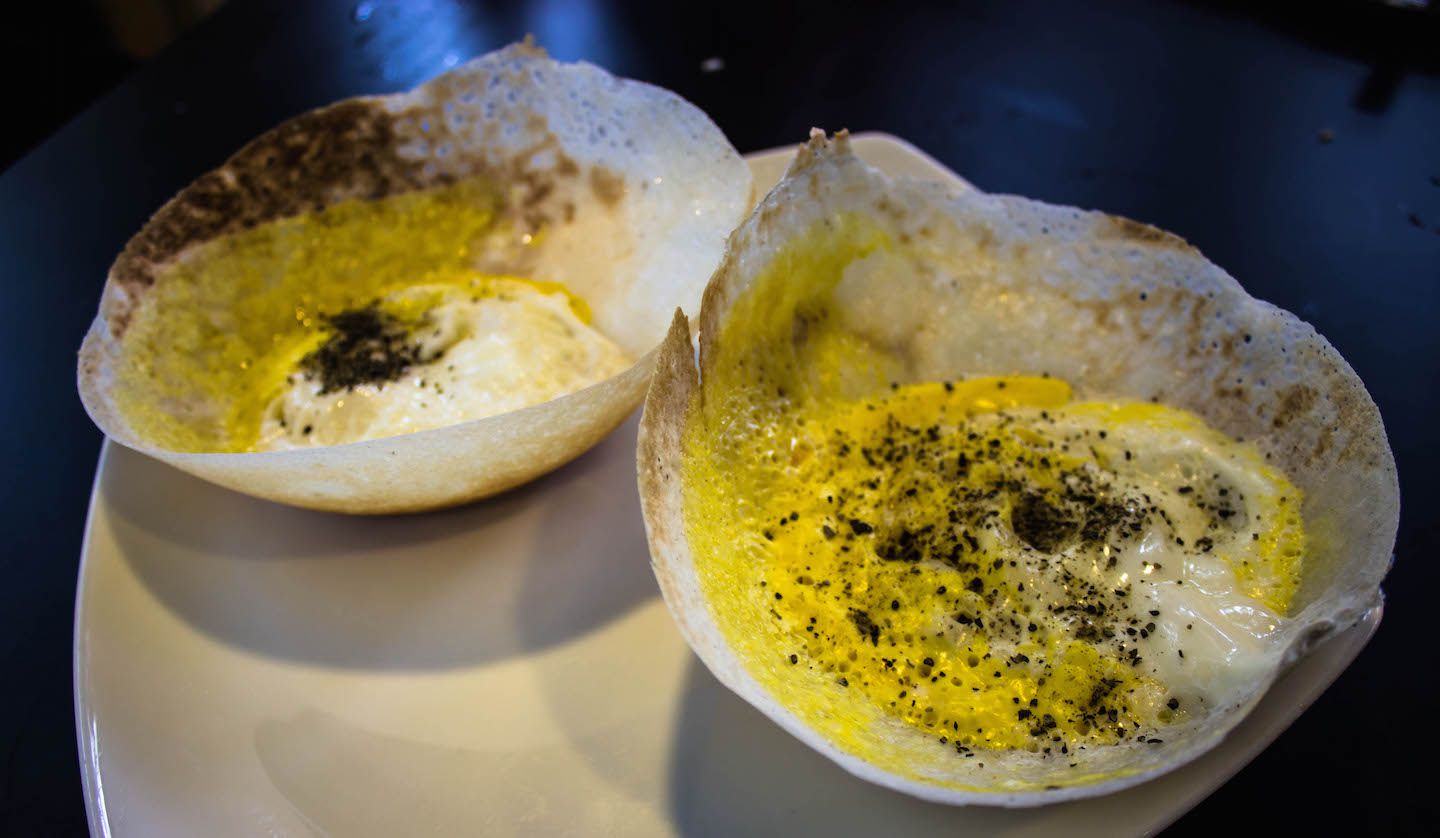Sri Lankan cuisine was a curious mix of colonial as well as Indian influences. In some ways, it gave us an idea of what south Indian food is like… with a Sri Lankan twist. We had a blast trying the local specialties.
Kottu
One of the most popular and widespread dishes in Sri Lanka, kottu has been a staple for many years. It consists of Sri Lankan roti cut into pieces, then stir-fried with meat, vegetables and spices. Variety in kottus comes from the supporting ingredients, ranging from any kind of meat or seafood to egg and cheese for vegetarian options, or any combination thereof.

Kottu was our go-to dish in Sri Lanka, even available for take-out!
Hoppers
Hoppers were one of the most unique dishes to date, and it took us some time to figure out what exactly these odd-looking things were. They’re essentially a bowl-shaped crepe, usually with a sunny side up egg inside. It’s popular for breakfast, and people usually order a stack of them to eat – a pile of bowls stacked upon one another.

The fermented batter used for hoppers is usually made up of rice flour and coconut milk, which is then pan-fried or steamed into its distinctive bowl shape. The batter was surprisingly crispy while the egg was soft and lightly salted. Savoury hoppers (like the ones with egg) were usually served with a red sauce of onions and spices. I have to say it was a very original way of eating breakfast-style items.
Lamprais
Also known as “lumprice,” lamprais is a Dutch-inspired Sri Lankan dish. Curry-flavoured rice, frikkadels (Afrikaner meatballs), a boiled egg, etc. are all wrapped and baked in a banana leaf package.

The banana leaf package was served still intact, and I enjoyed unwrapping it like a present. I have to admit it wasn’t my favourite dish, or maybe I had very high expectations. All the ingredients were very filling, but heavy and a bit dry. I think it’s still worth a try, though, because it’s a famous Sri Lankan delicacy.

Sri Lankan Rice and Curry
Similar to south Indian curry, Sri Lankan curries utilize more vegetables and less sauce as compared to north Indian curries. Usually pretty standard, we had a local version in Ella that was special.

Besides rice, we had ten other smaller bowls, each filled with something different. From eggplant to pumpkin, ladyfingers to pineapples, every single one was well-cooked with a depth of flavours. I love variety in a meal, so having ten different things to choose from was exciting. If being vegetarian is like this, I may not mind so much.
Faluda
Apparently faludas are popular on the entire Indian sub-continent, but it was only in Sri Lanka that we tried it for the first time. Reminiscent of a milkshake, faluda is a cold beverage with many toppings. Rose syrup gives it its pink colour, while tapioca pearls and gelatin add texture and something to chew on. A generous scoop of ice cream completes the perfect sweet drink/dessert. Needless to say, Carlos loved faludas.

In general, we found Sri Lankan food to be easier to get used to than Indian food (not to mention much easier to write about!). Just like the rest of Sri Lanka, we found its cuisine to be equally pleasantly surprising. It’s a shame that more people don’t know about and visit Sri Lanka when there is so much to be savoured.

